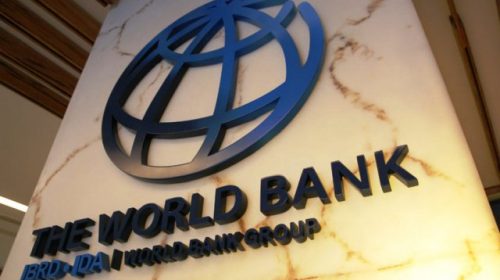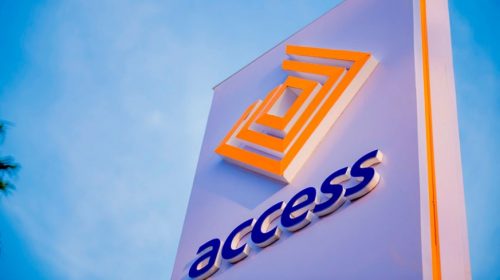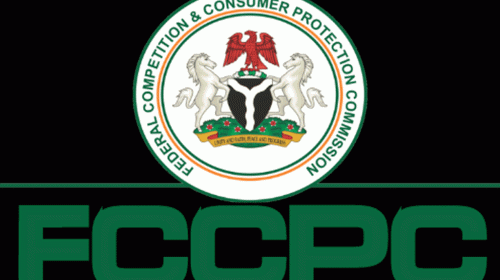Nigeria’s 1.4 per cent GDP growth, clear indication of ongoing progress in economy …. FG

The Federal Government described the positive growth rate recorded by the Nigerian economy in the third quarter of 2017 as a clear indication of ongoing progress in the economy.
The National Bureau of Statistics on Monday released the Gross Domestic Product growth rate for the country with the economy recording a 1.4 per cent increase in the third quarter of this year, a growth which was largely driven by agricultural sector, particularly crop production.
Thus marking the second consecutive positive growth since Nigeria came out its recession in the second quarter of the year.
According to NBS the 1.4 per cent growth rate in the third quarter was higher than the revised figure of 0.72 per cent
In nominal terms, the report put the third quarter aggregate GDP at N29.45tn.
This, it noted, was higher when compared to the N26.53tn nominal GDP recorded in the corresponding third quarter of 2016.
The report read in part, “The nation’s Gross Domestic Product grew in Q3 2017 by 1.40 per cent year-on-year in real terms, the second consecutive positive growth since the emergence of the economy from recession in Q2 2017.
“This growth is 3.74 per cent points higher than the rate recorded in the corresponding quarter of 2016 (-2.34 per cent) and higher by 0.68 per cent points from the rate recorded in the preceding quarter, which was revised to 0.72 per cent from 0.55 per cent.”
In terms of contributions to the economy, the NBS explained that real growth of the oil sector was 25.89 per cent year-on-year in the third quarter of the current fiscal year.
This, the report stated, represented an increase of 48.92 per cent relative to the rate recorded in the corresponding quarter of 2016.
Oil production during the quarter, according to the report, was higher by 420,000 barrels per day relative to the corresponding quarter of 2016.
As a share of the economy, the report stated that oil sector contributed 10.04 per cent of total real GDP in the third quarter of 2017.
For the non-oil sector of the economy, the NBS report explained that this sector grew by 0.76 per cent in real terms during the third quarter.
The report stated that the growth in the non-oil sector was driven mainly by activities in the agricultural sector, services, electricity, gas, steam and air-conditioning supply.
It added that the non-oil sector contributed 89.96 per cent to the nation’s GDP, lower than the 91.91 per cent recorded in the third quarter of 2016, and the 90.96 per cent recorded in the second quarter of this year.
In terms of sectoral performance, the NBS report explained that agriculture contributed 24.44 per cent to the nominal GDP.
The rate of contribution, according to the report, is higher than the 24.11 per cent and 19.28 per cent rates recorded for the third quarter of 2016 and the second quarter of 2017, respectively.
In terms of growth, the report added that the agricultural sector in the third quarter of 2017 grew by 3.06 per cent year-on-year in real terms.
For the manufacturing sector, the NBS report stated that real GDP growth rate was 2.85 per cent year-on-year, higher than the 1.53 per cent recorded in the same quarter of 2016.
For the construction sector, it stated that the real growth rate in the third quarter was recorded at -0.46 per cent, while the mining and quarrying sector grew by 25.44 per cent in the third quarter of 2017.
While reacting to the development, the Federal Government said the positive growth rate was a clear indication of ongoing progress in the economy.
It said in a statement by the Senior Special Assistant to the Vice President on Media and Publicity, Laolu Akande, “The Buhari administration welcomes the new growth figures and will continue to work diligently on a daily basis to ensure inclusive growth, to which we have always been committed through the active pursuit of a raft of policy initiatives, past and present.
“Such initiatives include but not limited to the Social Investment Programmes, Anchor Borrowers’ Scheme, longstanding budget support facilities to the states, plus other bailout packages, and ensuring the comprehensive payment of workers’ salary and pension backlogs, among others. Equally, the Federal Government will be ramping up the implementation pace of the Economic Recovery and Growth Plan.”
The Special Adviser to the President on Economic Matters, Dr. Adeyemi Dipeolu, stated, “The latest NBS GDP figures show that the Nigerian economy grew by 1.4 per cent year-on-year in real terms in the third quarter of 2017. This is a steady continuation of the positive growth of 0.55 per cent (now revised to 0.72 per cent) experienced in Q2 2017 and reinforces the exit from the 2016 recession.
“The positive growth in Q3 is consistent with the improvements in other indicators. Foreign exchange reserves have risen to nearly $34bn, while the stock market and purchasing managers’ indices have also been positive.
“The naira exchange rate has stabilised, while inflation has declined to 15.91 per cent from 18.7 per cent in January 2017. While inflation is not declining as fast as desirable, it is approaching the estimated target of 15.74 per cent for the year in the Economic Recovery and Growth Plan.”
He added, “It is expected that the economy will continue to grow given these developments and the reform and improvements in the business environment shown by the upward movement of 24 places in the recently released World Bank’s Ease of Doing Business Rankings, which was better than the target of 20 places specified in the ERGP.
“The overall picture that emerges is that the economy is on the path of recovery. As inflation trends downwards, and with steady implementation of the ERGP, real growth should soon be realised across all sectors in a mutually reinforcing manner.
By SuperNews
With additional report from Punch






Leave a Reply